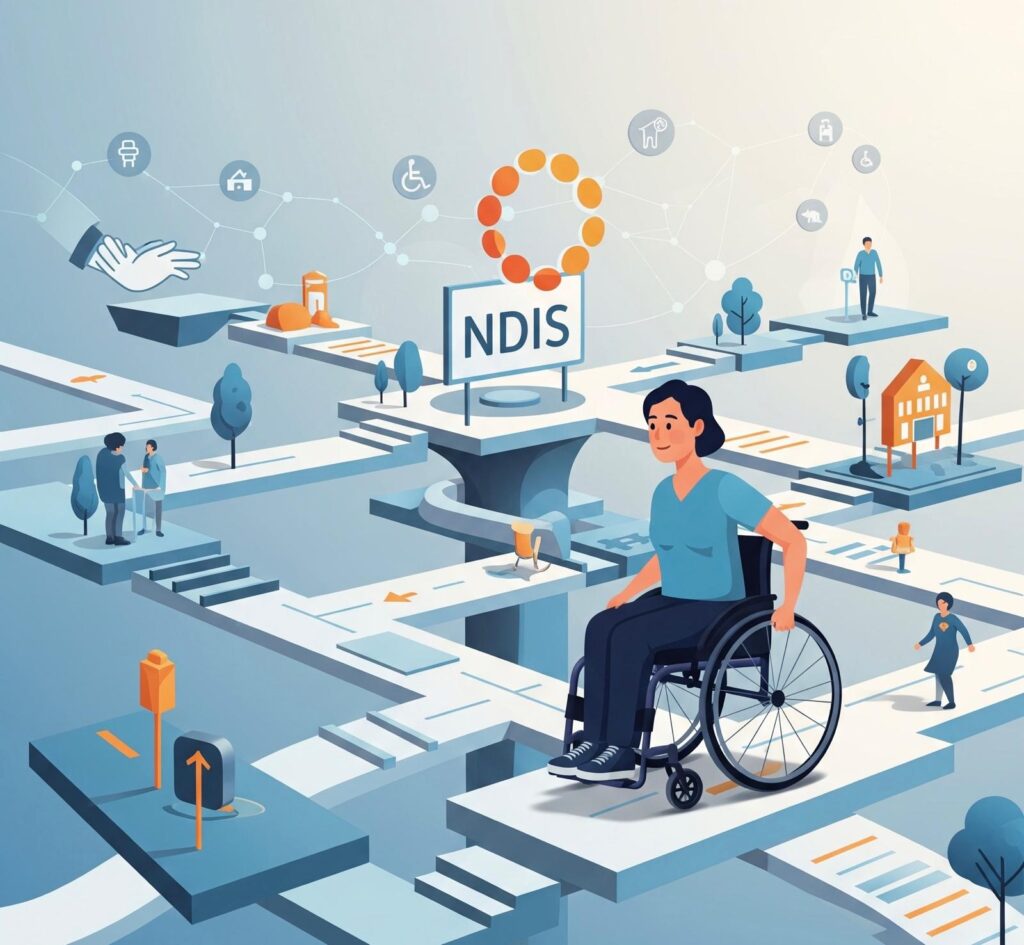Lady Gaga’s Born This Way Foundation, established in 2012, has been widely praised for its efforts to promote youth mental health and foster a culture of kindness and inclusivity. However, like many philanthropic initiatives, it has not been without its criticisms. While the foundation has made significant strides in raising awareness and supporting mental health, some critics have raised concerns about its effectiveness, transparency, and approach. In this article we criticall y evaluate these aspects to understand the broader implications for mental health advocacy.
Promoting Kindness and Community Engagement
One of the core principles of the Born This Way Foundation is promoting kindness as a means to improve mental health. Research has shown that kindness and altruistic behaviour can positively affect mental well-being by reducing stress, increasing happiness, and fostering a sense of belonging (Lyubomirsky, Sheldon, & Schkade, 2005). The foundation’s initiatives, such as the #BeKind21 campaign, encourage individuals to practise kindness daily, which can have lasting benefits for both the giver and the receiver.
The foundation also places a strong emphasis on community engagement. By partnering with schools, organisations, and online platforms, Born This Way creates safe spaces where young people can openly discuss their mental health without fear of judgment. This approach is supported by evidence that social support and community involvement are protective factors against mental health disorders (Cohen & Wills, 1985).
Addressing Mental Health Stigma
Stigma remains one of the most significant barriers to seeking help for mental health issues. The Born This Way Foundation actively works to reduce this stigma through public awareness campaigns and by encouraging open conversations about mental health. Lady Gaga herself has been vocal about her mental health struggles, including her experiences with post-traumatic stress disorder (PTSD) and chronic pain, which has helped normalise these discussions in the public domain.
Reducing stigma is crucial because it can lead to earlier help-seeking behaviours, which are associated with better outcomes for individuals with mental health conditions (Corrigan, 2004). The foundation’s efforts to de-stigmatise mental health align with contemporary psychological practices that advocate for the normalisation of mental health care as part of overall well-being.
Empowering Youth through Digital Platforms
In the digital age, the Born This Way Foundation has leveraged online platforms to reach a broader audience. The foundation’s digital initiatives include the Be There Certificate, an online mental health course developed in partnership with Jack.org, which educates young people on how to support their peers. This digital approach is particularly effective in reaching young people who may be reluctant to seek help through traditional means.
Online mental health resources have been shown to be effective in providing accessible support, particularly for young people who are comfortable using digital platforms (Richards et al., 2018). By offering these resources, the Born This Way Foundation ensures that mental health support is available to a diverse audience, regardless of geographic location.
Long-Term Impact and Future Directions
The Born This Way Foundation’s long-term impact on youth mental health is evident in the millions of young people it has reached through its programs and campaigns. The foundation’s focus on kindness, community engagement, and stigma reduction provides a comprehensive approach to mental health that aligns with best practices in psychological research and intervention.
Looking forward, the foundation’s continued commitment to innovation and collaboration with mental health professionals, educators, and policymakers will be crucial in sustaining its positive impact. In Australia, where youth mental health remains a pressing issue, initiatives like those championed by the Born This Way Foundation serve as valuable models for addressing the mental health needs of young people.
Concerns About Effectiveness and Impact
One of the primary criticisms of the Born This Way Foundation revolves around the measurement of its impact. Critics argue that while the foundation has been successful in creating high-profile campaigns and partnerships, there is limited publicly available data to assess the tangible outcomes of its programs. Effective mental health interventions require robust evidence to demonstrate their impact on the target population, particularly in terms of reducing mental health symptoms, improving well-being, and increasing access to mental health services (Kazdin, 2019).
A report by the American Institute of Philanthropy questioned the foundation’s spending, noting that a significant portion of its budget was allocated to administrative costs, with less directly supporting mental health services (CharityWatch, 2013). While administrative expenses are necessary for any organisation, the concern is that the foundation may not be maximising its resources to directly benefit those it aims to serve.
Furthermore, some mental health professionals have questioned the foundation’s approach to promoting kindness and resilience as solutions to complex mental health issues. While these are undoubtedly valuable, there is a risk of oversimplifying mental health challenges, which often require comprehensive and tailored interventions, including professional psychological support, medication, and evidence-based therapies (Patel et al., 2018).
Transparency and Accountability
Transparency is a crucial component of any philanthropic organisation, particularly when it comes to financial accountability and reporting outcomes. Critics have noted that the Born This Way Foundation could improve its transparency by providing more detailed reports on how funds are allocated and the specific impacts of its initiatives (Philanthropy News Digest, 2013). Transparent reporting not only builds trust with stakeholders but also ensures that the organisation is held accountable for its actions and can continuously improve its programs based on feedback and evidence.
Additionally, while the foundation has partnered with various organisations to promote mental health, some critics argue that there is limited information available about the long-term sustainability of these partnerships and the follow-through on their initiatives. Sustainable mental health programs require ongoing evaluation and adaptation to meet the evolving needs of the population they serve (National Health and Medical Research Council, 2019).
Celebrity Influence and the Risk of Overshadowing
Another criticism of the Born This Way Foundation relates to the influence of celebrity culture on its operations. While Lady Gaga’s involvement has undoubtedly brought significant attention to youth mental health issues, there is concern that the focus on her celebrity status may overshadow the foundation’s work and the voices of those it seeks to help (Chouliaraki, 2013). This dynamic can create a “halo effect,” where the perceived effectiveness of the foundation is influenced more by Lady Gaga’s public image than by measurable outcomes.
Furthermore, the reliance on celebrity-driven campaigns may limit the foundation’s ability to address the more systemic and structural issues that contribute to mental health problems, such as socioeconomic disparities, access to care, and discrimination (Diemer et al., 2016). While awareness is essential, it must be coupled with concrete actions that address these underlying factors to create lasting change.
The Balance Between Awareness and Action
Finally, there is ongoing debate about the balance between raising awareness and taking action in mental health advocacy. While the Born This Way Foundation has been successful in raising awareness about youth mental health, critics argue that awareness alone is not sufficient. Effective mental health advocacy requires a focus on policy change, access to care, and evidence-based interventions that address the root causes of mental health issues (WHO, 2020).
For example, while the foundation’s emphasis on promoting kindness is commendable, it is important to recognise that mental health conditions such as depression, anxiety, and bipolar disorder cannot be resolved through kindness alone. These conditions require professional treatment and support, which may include psychotherapy, medication, and community-based interventions (Australian Psychological Society, 2021). By focusing predominantly on awareness, there is a risk of minimising the complexity of mental health challenges and the need for comprehensive care.
Conclusion
The Born This Way Foundation has made significant contributions to the field of youth mental health by raising awareness and fostering a culture of kindness and inclusivity. However, as with any large-scale initiative, it is important to critically assess its effectiveness, transparency, and approach. Addressing these criticisms can help the foundation enhance its impact and ensure that it is making meaningful contributions to the well-being of young people. For mental health professionals and advocates, these discussions are crucial in guiding the development of effective and sustainable mental health initiatives that truly meet the needs of those they aim to serve.
References
- Australian Institute of Health and Welfare. (2021). Mental health services in Australia. AIHW.
- Australian Psychological Society. (2021). Evidence-Based Practice in Psychology. APS.
- CharityWatch. (2013). Born This Way Foundation. CharityWatch.
- Chouliaraki, L. (2013). The Ironic Spectator: Solidarity in the Age of Post-Humanitarianism. Polity Press.
- Cohen, S., & Wills, T. A. (1985). Stress, social support, and the buffering hypothesis. Psychological Bulletin, 98(2), 310-357.
- Corrigan, P. W. (2004). How stigma interferes with mental health care. American Psychologist, 59(7), 614-625.
- Diemer, M. A., et al. (2016). Addressing inequality in youth mental health research through participatory methods. Journal of Youth and Adolescence, 45(8), 1420-1436.
- Kazdin, A. E. (2019). Single-Case Research Designs: Methods for Clinical and Applied Settings (3rd ed.). Oxford University Press.
- Kessler, R. C., Berglund, P., Demler, O., Jin, R., Merikangas, K. R., & Walters, E. E. (2007). Lifetime prevalence and age-of-onset distributions of DSM-IV disorders in the National Comorbidity Survey Replication. Archives of General Psychiatry, 62(6), 593-602.
- Lyubomirsky, S., Sheldon, K. M., & Schkade, D. (2005). Pursuing happiness: The architecture of sustainable change. Review of General Psychology, 9(2), 111-131.
- National Health and Medical Research Council. (2019). Guidelines for the Development of Evidence-Based Interventions. NHMRC.
- Patel, V., et al. (2018). The Lancet Commission on global mental health and sustainable development. The Lancet, 392(10157), 1553-1598.
- Philanthropy News Digest. (2013). Born This Way Foundation Criticised for Limited Impact. Philanthropy News Digest.
- Richards, D., Murphy, T., & Viganó, N. (2018). Online interventions for stigma reduction: A systematic review. Journal of Medical Internet Research, 20(5), e153.
- WHO. (2020). Mental health and psychosocial considerations during the COVID-19 outbreak. World Health Organization.
How to get in touch
If you or your NDIS participant need immediate mental healthcare assistance, feel free to get in contact with us on 1800 NEAR ME – admin@therapynearme.com.au.







